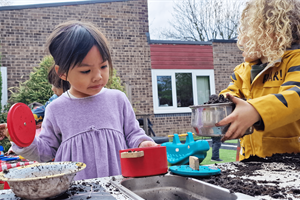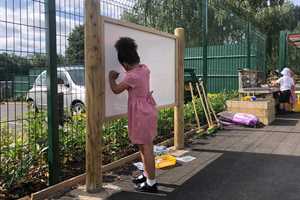
Lesson Ideas and Activities
Children's Science Activities for British Science Week
British Science Week will take place between 7-16th March 2025. It is a ten-day celebration of science, technology, engineering, and maths (STEM). The week has become a nationally-celebrated event, with communities across the UK taking part by offering a variety of services and activities for people to take part in.
What is British Science Week?
British Science Week is an annual ten-day celebration dedicated to the wonders of science, technology, engineering, and maths (STEM). It provides an opportunity for children, students, teachers, and community groups to engage with science through a variety of fun and educational activities.
The event is organized by the British Science Association and encourages people of all ages to explore and appreciate the impact of science in our everyday lives. Through hands-on experiments, interactive workshops, and inspiring talks, British Science Week aims to spark curiosity and foster a lifelong interest in science.
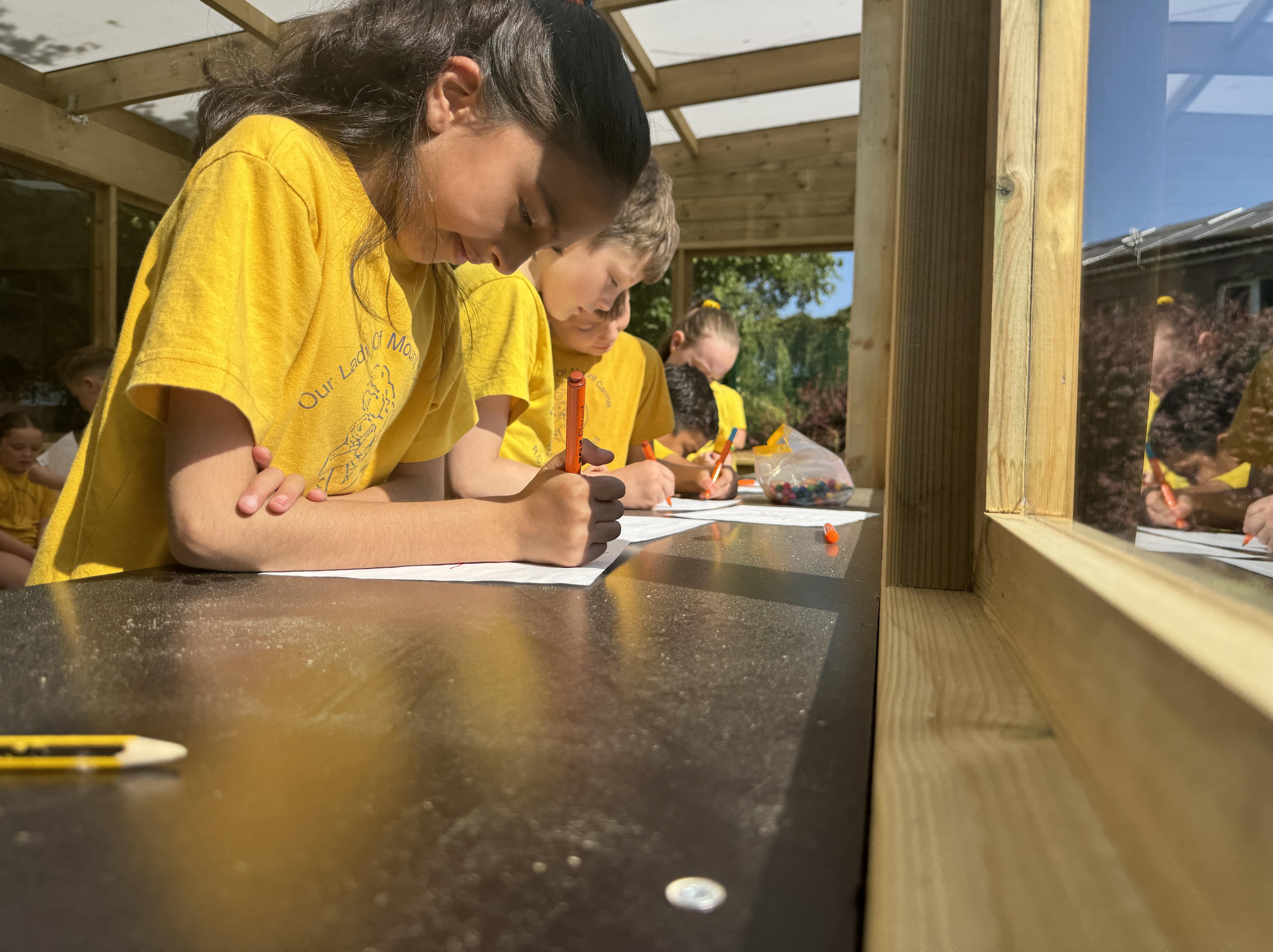
Every year, British Science Week adopts a specific theme to guide the activities and discussions. For instance, the theme for British Science Week 2025 is “Change and Adapt”, which focuses on the dynamic nature of the world around us.
Schools, libraries, museums, and businesses across the UK participate in this event by hosting science-related events and activities that align with the theme. This collective effort not only enhances science education but also strengthens community bonds by bringing people together to celebrate the marvels of the scientific world.

Planning Your Science Week
Planning your Science Week can be an exciting and rewarding experience. Start by exploring the British Science Association’s website for a treasure trove of activity ideas, resources, and inspiration.
Consider involving your local community groups, scientists, and science organisations to make the event even more engaging and impactful. Utilise our comprehensive Science Resources to support your teaching and maximise the ten-day celebration.
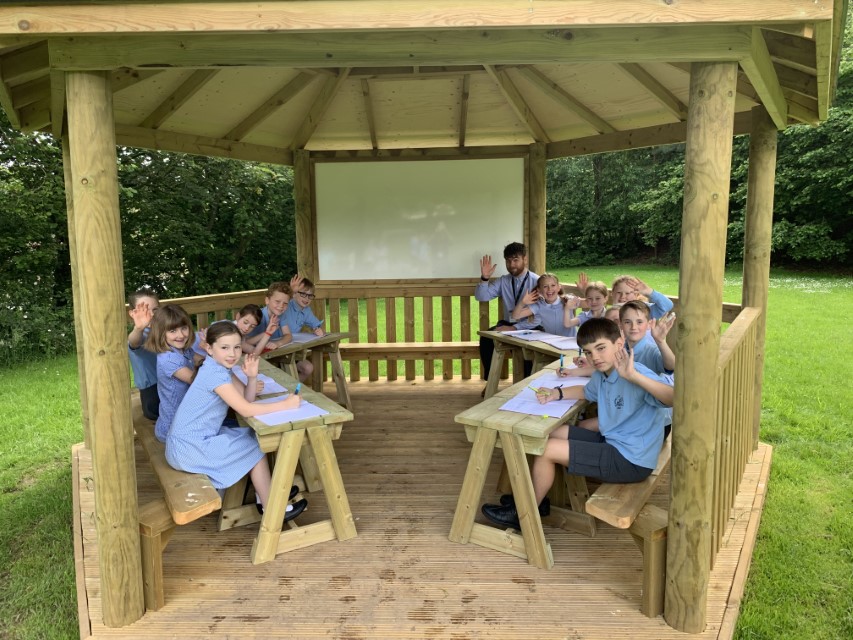
Promote your events on social media using the hashtag #BSW25 to reach a wider audience and share the excitement of British Science Week with others. With a bit of planning and creativity, you can create a memorable and educational experience for everyone involved.
Incorporating the Outdoors into Science Education
Incorporating outdoor science activities into science education for Key Stage 1 (KS1) and early years can offer rich and engaging learning experiences for children. Here are some reasons why the outdoors is relevant to science education in KS1:
Hands-on Learning: The outdoors provides a real-world laboratory where students can engage in hands-on exploration. For KS1 children, this tactile experience is invaluable for understanding scientific concepts such as plant growth, animal behaviour, and the properties of materials.
Observation Skills: Being outdoors encourages children to use their senses to observe the world around them. They can explore different textures, colours, shapes, and sounds, honing their observational skills, which are fundamental in scientific inquiry.
Connection to Nature: Developing an appreciation for nature early on can foster a lifelong interest in science and environmental conservation. Children can learn to connect with the natural world, by identifying local plants and animals or learning about the seasons.
Cross-Curricular Learning: Outdoor science activities can easily integrate with other subjects such as numeracy, literacy, and art. For example, children can measure the heights of different trees, write nature diaries, or create wonderful nature-inspired pieces of artwork, whilst at the same time providing a holistic learning experience.
Curiosity and Inquiry: The outdoors is a natural catalyst for curiosity in children. Encouraging them to ask questions about what they see, and experience fosters a sense of inquiry and critical thinking skills, which are essential aspects of scientific inquiry.
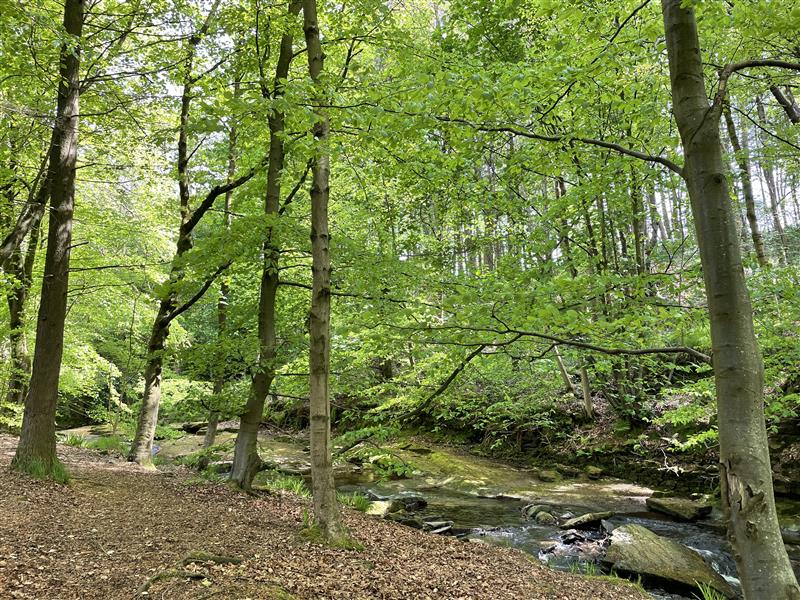
Health and Well-Being: Spending time outdoors has many health and well-being benefits, including reducing stress and improving mood. Allowing children to do outdoor science experiments helps promote children’s physical and mental health and promotes overall well-being.
Seasonal Changes: Exploring the outdoors throughout the year allows students to observe and investigate seasonal changes first-hand. By conducting easy outdoor science experiments, they can learn about concepts such as water cycles, migration patterns, and the life cycles of plants and animals.

Environmental Awareness: Outdoor science activities and lessons allow children to learn about environmental issues and the importance of conservation. Children can learn about recycling, habitat management, and pollution through hands-on activities and exploration.
Citizen Science Opportunities: Children can be part of a Citizen Science project. For KS1 this can be in the form of bird watching or monitoring local weather patterns.
Family Involvement: Families can get involved with outdoor science activities too. STEM activities don’t have to be hard they can be as simple as walking in parks and naming trees, to holding a mini-beast hunt in your back garden. Everyone can get involved!
Outdoor Science Activities for KS1 Children
Outdoor science activities for KS1 children can help them develop their observation, exploration, and inquiry skills, as well as foster their curiosity and appreciation for nature. They should therefore be engaging, hands-on, and tailored to their developmental level. Here are some easy outdoor science experiments for children to do:
Nature Scavenger Hunt: Create a list of items for children to find outdoors, such as different insects, flowers, leaves, or rocks. This encourages observation skills and helps children learn about the outdoor environment around them and biodiversity.
Planting Seeds: Provide children with pots, soil, seeds, and water. Show the children how to plant the seeds correctly. Once potted up the children can observe and document the growth of their plants, learning about the plant life cycles and what they need to grow.
Weather Observations: A lovely activity for children to do is weather observations. Set up a weather station with simple instruments such as a thermometer, rain gauge, and windsock. Children can record daily weather observations and learn about different weather patterns and how they have affected the environment.
Shadow Science: On a sunny day a great STEM activity is…, have the children trace and measure their shadows at different times throughout the day. They can learn about the movement of the sun and how it affects the length and direction of shadows.
.jpg)
For more activities and ideas, consider exploring additional resources that provide a variety of engaging materials such as PowerPoints, activities, and experiments.
Fun Science Play Products for Your Playground
Turn your children into budding scientists as they conduct investigations and examine wildlife using 1 or all 3 of the following Pentagon Play outdoor science products.
Wildlife Area:
Pentagon Play’s Wildlife Area helps children uncover the wonders of the natural world through play and investigation as they take part in fun science STEM activities.
This safe fenced-off area includes a large, decked area with a pond, planting area, attractive mini-beast habitat, mini-beast identification sheet, and seating.
The planting area is ideal for growing vegetables, herbs, and plants while it is the perfect habitat for mini beasts. Creating the perfect environment for children to examine and observe both plants and animals in a safe, natural setting. Children can refer to the mini-beast identification sheet to aid their learning and understanding.
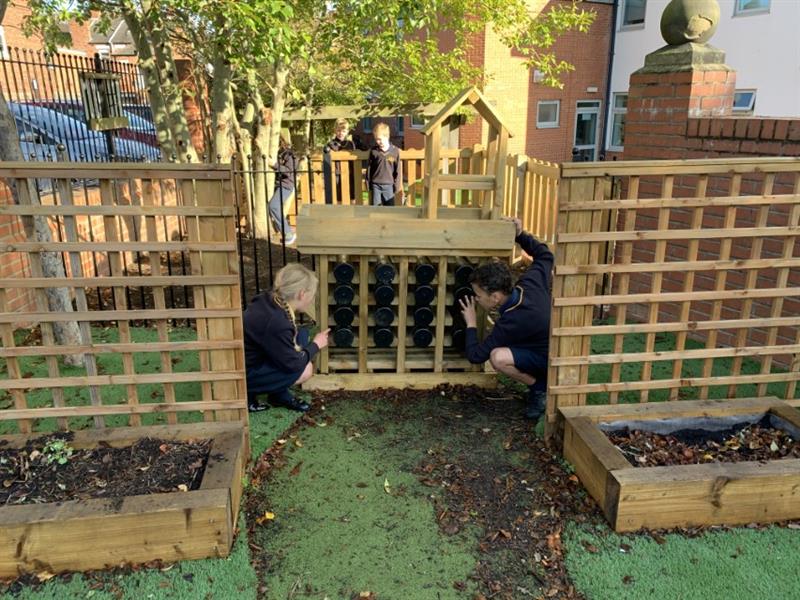
The pond also provides a wonderful habitat for aquatic insects, small fish, and water-based plants. Children can learn about pH levers and temperature regulation when fish are released into the pond’s water.
Watch how the children become enthused and excited about science as they discover the natural world around them through investigative learning as they participate in exciting outdoor science experiments.
Windermere Water Play Package:
Windermere Water Play Package is a fantastic resource for any school looking to extend their children’s learning through outdoor science experiments. Consisting of the Water Wall, Water Channel Stands, and a Water Table set is a wonderfully versatile package that enhances water play individually or in groups.
The Windermere Water Play Package provides the perfect environment for outdoor science activities where children can discover the miracles of gravity as they channel the water through the tubes and direct it toward the Water Table. Additionally, AR applications can be used to visualise and interact with elements like the planets of the solar system, making science more engaging and informative.
Teachers can incorporate this fantastic product into outdoor STEM activities such as utilising raindrops and mountain etches to teach the water cycle.
A fun science product for any playground that enhances children’s understanding of scientific terms and facts through engaging, free-flowing play.
Flow Table:
Pentagon Play’s Flow Table is a wonderful addition to any outdoor science setting. Through child-led play, children can take turns releasing different objects down the table (cars, balls, etc).
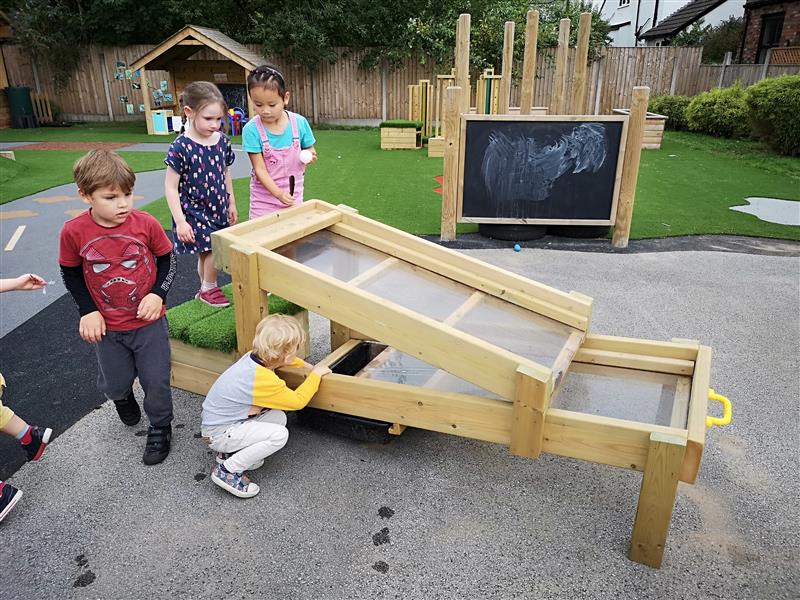
This is an easy outdoor science experiment setting, where children can learn about velocity and speed, whilst at the same time improving their communication and language skills as they discuss the results amongst themselves.
STEM Challenges and Investigations
STEM challenges and investigations are fantastic ways to encourage students to think creatively and develop their problem-solving skills. Why not set up a STEM challenge in your school or community group, where students can design and test their own solutions to real-world problems?
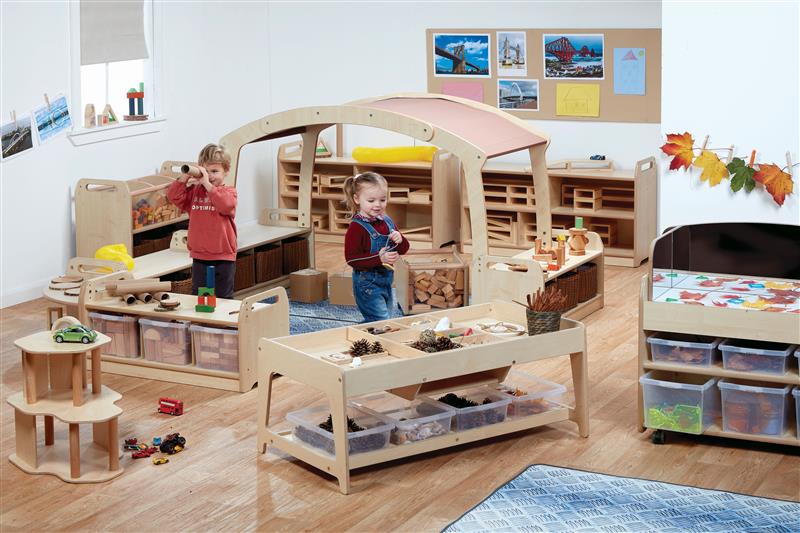
The Millhouse STEM Investigation Zone can provide the support and inspiration your little ones need to get started. Featuring a wide variety of different pieces of EYFS furniture, this zone is a sure fire way to provide the perfect environment for STEM learning.
Resources and Support for Teachers
As a teacher, you play a crucial role in inspiring the next generation of scientists and engineers. To support you in this mission, we offer a wide range of science resources, including blogs, lesson plans, and high quality play equipment.
Our resources are designed to be user-friendly and require minimal technical expertise, making it easy for you to integrate them into your lessons. We also provide specialised resources to support children with SEND, ensuring that every student has the opportunity to explore and enjoy science.
Check out our website for more ideas and inspiration to enhance your teaching and make science lessons more engaging.
Promoting Diversity in Science
Promoting diversity in science is essential to ensure that everyone has the opportunity to participate and contribute to the scientific community.
The British Science Association’s “Smashing Stereotypes” campaign is a fantastic initiative that celebrates the diversity of the STEM workforce and challenges preconceived notions of what a scientist looks like. You can use our Science Resources to support your teaching and promote diversity in science.

Consider inviting scientists from various backgrounds to speak to your students or organising a visit to a science museum or centre. By showcasing diverse role models and inclusive practices, you can inspire all students to see themselves as future scientists.
Get Involved with #BSW25!
What are you waiting for! Help your little scientists understand more about the world around them by taking the opportunity to get involved with British Science Week 2025 this week. We hope that this blog has provided you with some great ideas on how you can inspire the next generation of little Einsteins!
For more information on Pentagon Play’s products Contact One of our Team or email [email protected] where one of our expert advisers will be happy to help!



 (Custom).jpg)

